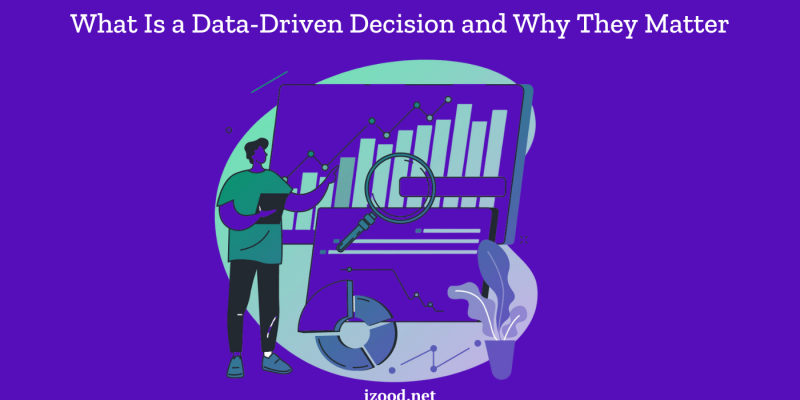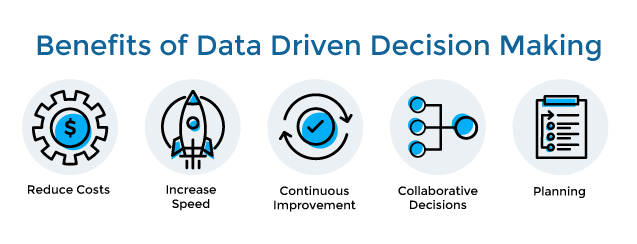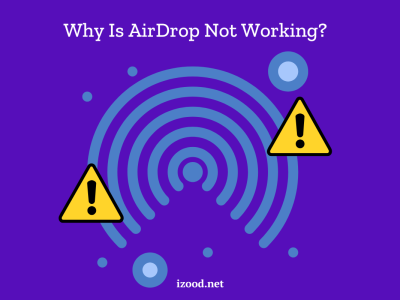
Humans make decisions about everything in their daily lives—what to do for the day, where to eat, and more. Typically, these decisions are usually based on feelings, biases, or past experiences, and are often made in split seconds.
This may be a quick and convenient way to go about your daily activities. However, when it comes to business decisions, there are more important things to factor into the equation. This is where data-driven decision-making comes into play. Through this process, businesses can make informed decisions using factual information.
How does the process work? Let’s keep this discussion going by reviewing the definition and benefits of data-driven decision-making (plus some examples of how it works in different industries).
What Is Data-Driven Decision Making (DDDM)?
Data-driven decision-making (DDDM) is the process of using objective data to guide and influence decisions. This data comes from various sources, such as a company’s key performance indicators (KPIs), market research, and data annotation and analytics tools.
By basing decisions on cold, hard data instead of assumptions or subjective information, businesses gain a better understanding of what specific actions they need to take. Companies leverage this data to help mitigate risks, find common trends and patterns, improve overall efficiency, and boost performance.
Organizing the data and ensuring it’s relevant to the current situation is only the first step—it’s the platform to launch off of. Correct and accurate information gives businesses a strong foundation to execute new plans and formulate strategies moving forward.

Examples of Data-Driven Decision Making
Organizations in almost every industry use data and analytics in their decision-making process. Not only does it contribute to company success, but it also gives an objective basis for all decisions moving forward.
Let’s take a look at some examples of how different industries utilize data to make informed decisions:
Healthcare
Data-driven decision-making has historically been critical in the healthcare and medical industry. Healthcare companies utilize and analyze data from several sources to improve overall patient experience and efficiency.
Data is continuously generated through patient records, medical treatments, research, and diagnostic tests. One way medical professionals use this wealth of information is by creating more informed and specific treatment plans.
Data-driven decision-making also helps pharmaceutical companies identify and develop new drugs and medicines, thanks to the large amount of clinical trial data generated. It is crucial to verify all data so that institutions can harness it more effectively, leading to better and more accurate outcomes for patients and healthcare professionals.
You can hire a fractional chief technical officer to assist with data analytics and data organization. When in an industry with confidential information like healthcare, information is protected with robust legislation. Staying on the right side of HIPAA (including the HIPAA Privacy Rule for marketing) is vital.
E-commerce
Online shopping has taken the world by storm. One reason why is because e-commerce companies are in a unique position to gather and use data to attract and retain customers.
E-commerce brands gather customers’ data and create personalized, data-driven marketing campaigns. Some of the factors they look at are your purchase history, amount of time spent shopping on their website, customer feedback, and items in your shopping cart.
Furthermore, popular e-commerce platforms like Amazon and Shopify take metrics like click-through rate and bounce rate to see which products customers are most interested in. With this data, companies can see which products are gathering the most interest and which site users are interested. With this information, companies can send follow-up emails on certain products. If you’ve seen emails or texts that say, “Still thinking about [X product here]?” with a link to that item, this is data at work.
Finance
The finance industry is prone to many risks and inaccuracies, which is why this sector uses data to make practical decisions that help assess and reduce these risks. By analyzing financial records and data, companies can improve risk management and help prevent financial threats from occurring.
The finance sector also uses data when segmenting its target markets. Individuals have different socioeconomic backgrounds, income levels, and spending habits. Collecting this data helps financial institutions tailor their marketing campaigns and align their products and services to target customers’ specific needs.
Education
Schools and universities use data to improve their marketing campaigns. For example, when it comes to attracting students for the school year, schools can gather data to analyze their competition. They can look at the enrollee rates of other schools or universities and devise student retention strategies to remain competitive. Schools can also track data on enrollment patterns to optimize marketing strategies and identify peak times for recruitment.
Consider this situation: If a university sees that enrollment is higher for schools with online classes (or online degrees), educational institutions can create online courses to attract students outside their location or nearby students who appreciate the freedom associated with e-learning apps.
Then, data comes into play when compliance monitoring (like with data protection regulations such as FERPA). Looking at a large data set as a whole can also help tech professionals analyze past security incidents and response times to improve protocols and reduce the impact of future data breaches or security issues.
Why Data-Driven Decision Making Matters
Data-driven decisions allow you to have greater control over your business and how it performs. By analyzing data, you can form actionable insights, identify trends, and anticipate potential challenges, allowing you to be more prepared for the future.
You can gather and analyze data with the help of a Fractional Chief Technology Officer. Digital Authority Partners can connect you with an FCTO who can help guide you through the data-driven decision-making process.
This article was written by Pranjal Bora who works as a Fractional Chief Technology Officer at Digital Authority Partners.

![How to Pause Location on Find My iPhone Without Them Knowing? [2024] 18 how to pause location on find my iphone](https://izood.net/wp-content/uploads/2024/10/How-to-Pause-Location-on-Find-My-iPhone-Without-Them-Knowing-400x300.png)


![How To Inspect Element on iPhone [4 Methods] 21 how to inspect element on iphone](https://izood.net/wp-content/uploads/2024/10/how-to-inspect-element-on-iphone-3-400x300.png)


